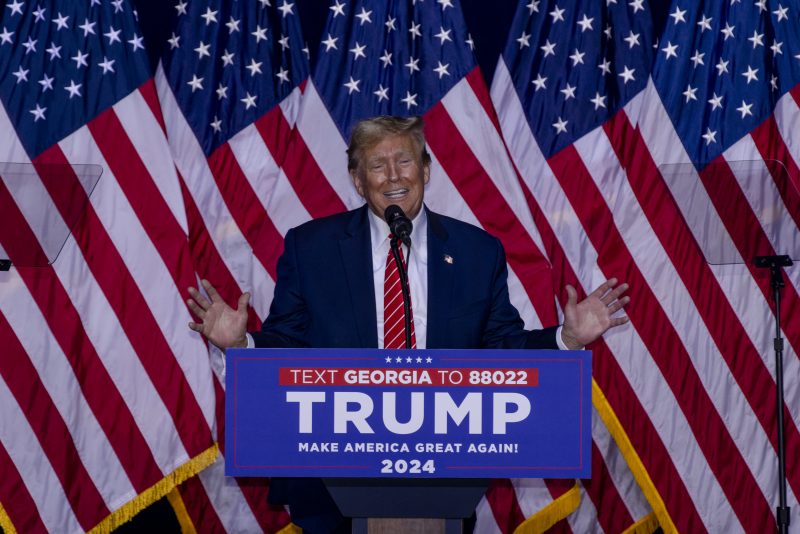
Awaiting Supreme Court’s Decision on Immunity, Trump Pushes for N.Y Trial Delay
Donald J. Trump, the expresident of the United States, recently sought to defer a trial in New York that involves his business, pending a Supreme Court hearing concerning a claim of absolute immunity. This article will unpack the intricacies of Trump’s request, the proceedings of the anticipated Supreme Court hearing, and its potential implications.
Firstly, it is vital to understand the context of the trial in question. The Manhattan District Attorney’s office has been investigating the business operations of the Trump Organization for suspected tax fraud, insurance fraud, and other business malpractice. The investigators are seeking several years worth of Trump’s tax returns and other relevant documents – a request that Trump has been fervently opposing.
To this end, Trump’s legal team has lodged a request in December 2021, calling for a pause in the trial in New York until the Supreme Court has heard his claim of absolute immunity. According to the expresident’s defense, this claim prevents him from being criminally prosecuted, as it refers to a constitutional privilege reserved for sitting presidents, theoretically protecting them from being subject to legal action while in office.
This argument is steeped in controversy, given that Trump is no longer in office. Trump’s attorneys primarily claim that any acts that occurred while he was president should be immune from litigation, posing potential disruption in the broad-reaching investigation into his business operations.
However, the Trump team’s motion has met with substantial opposition from the Manhattan District Attorney’s office. They have argued against Trump’s claim of immunity, contending that it is an unwarranted extension of presidential privilege and, if granted, may result in considerable delays in ongoing legal proceedings.
Additionally, the D.A’s office has raised concerns that a stay in the New York trial might indeed embolden future presidents to commit misconduct, knowing they can argue for immunity once out of office. Hence, deciding on absolute immunity for Trump could possess broader implications for American democracy, potentially questioning the accountability and transparency inherent to the presidential office.
Also worth noting is that the Supreme Court has previously rejected similar arguments by Trump; his assertion of absolute immunity was dismissed in 2020 when he tried to block the release of his financial records. Thus, it remains uncertain if the Supreme Court will entertain Trump’s recent claim, let alone rule in his favor.
In conclusion, Trump’s move to seek a delay in the trial pending a Supreme Court hearing on his immunity poses intriguing questions about presidential privilege and the extent of legal immunity a president should have. Although
